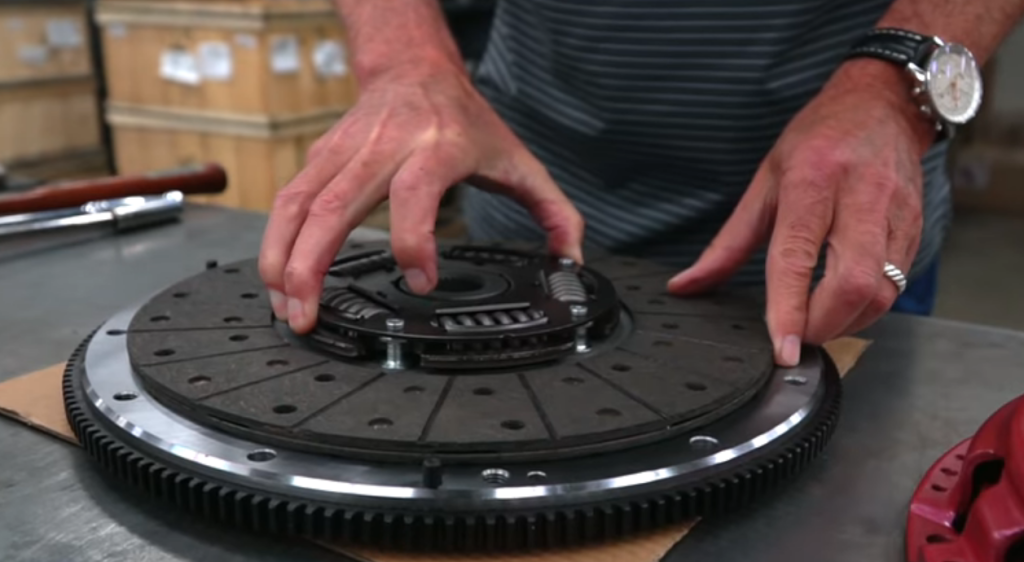
RAM Clutches recently posted an article on centrifugal clutch pressure on its blog, and the info was so good that we wanted to share a bit of it here. You can read the whole post on the RAM Clutches website: When is Centrifugal Clutch Pressure Effective?
If you’re in the market for a new clutch, then you may have several options when it comes to street car applications. While that’s typically a good thing, it can get confusing when trying to select the right clutch for your ride. So with the help of RAM Clutches, we’ll dive into one topic in particular that you’ll likely come across as you’re comparing clutch setups.
Understanding Centrifugal Clutch Pressure
There’s a good chance you’ll see the term “Centrifugal Clutch Pressure” used in regard to a clutch intended for a race car. And while it’s tempting to think that a race clutch is a good option for a high-power street car, it’s probably not.
To understand why, let’s explore what centrifugal clutch pressure is, and we’ll start with this insight from RAM Clutches:
- “First, we need to understand the method for increased holding power in a clutch. This can be done three ways—additional static or clamp pressure, increased coefficient friction clutch disc materials (with higher heat and holding capacities), or using centrifugal pressure.”
It’s pretty easy to understand how those first two, increased clamp load and more aggressive friction material, help improve a clutch’s holding power. But it’s also important to realize that those are both constant, meaning that their holding power doesn’t rely on engine speed (rpm).
The same can’t be said for centrifugal clutch pressure though, as its holding power varies with engine rpm. And that’s a big deal, because it often means that much of the holding power is only achieved way up in the rpm range.
No problem for a race car that’ll gleefully spin past 6,000 rpm on the track, but for a high-power street car that likes to play in a more reasonable 2,500 to 6,000 rpm window, it can seriously compromise clutch performance.
Here’s the take from RAM Clutches:
- “Centrifugal pressure cannot address this high torque in a low rpm situation. The only way to handle it is with a higher clamp load, more aggressive friction material, or a combination of these two.”
So, What’s a Good Clutch for a Big HP Street Car?
The good news is, that RAM’s got a smorgasbord of choices for a street-friendly performance clutch that combines the aforementioned higher clamp load with more aggressive friction material, like-a so:

This is the first article that I have seen that puts an actual RPM to the centrifugal clutch assist. Not too many street cars are operating consistently in the 5500 to 9000 RPM range. Thanks.